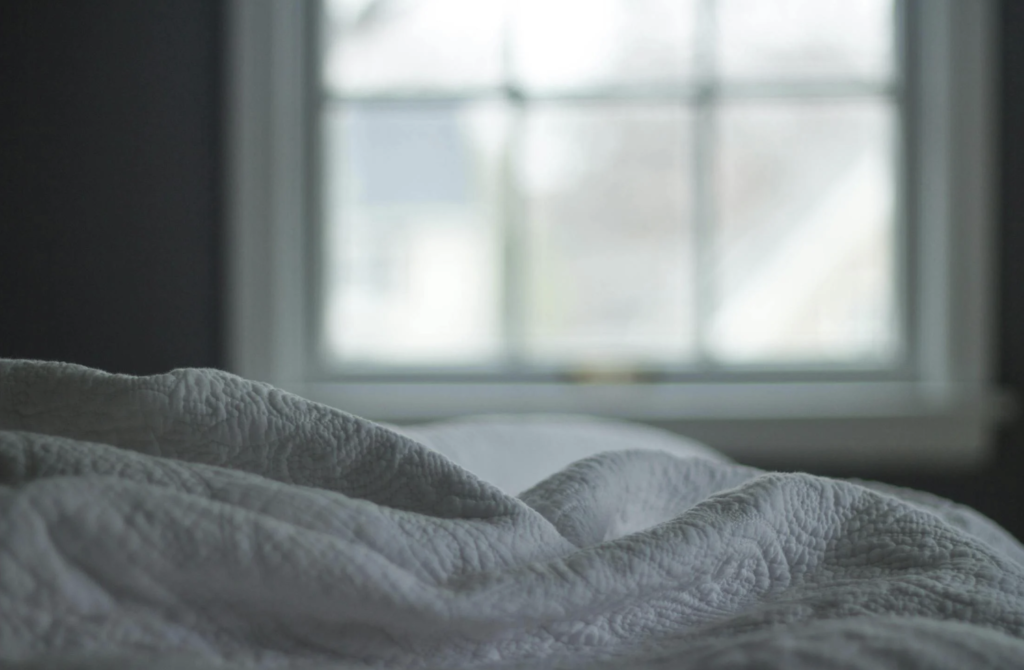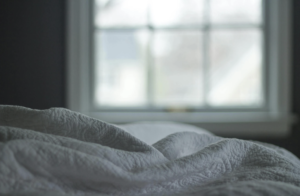Sleep Wellness: Why It Takes More Than Just A Chamomile Tea

Article by: Daisy Moss
Getting a good night’s sleep can transform all areas of our physical and mental health. We need enough sleep to help our bodies rest and recover, as well as to give us mental clarity, focus and generally to make us feel like ourselves. It’s not just about what we do 15 minutes before bed, but adjusting our routines to focus on sleep wellness. These are small changes that can transform your sleeping habits and therefore, how you feel throughout the rest of the day.
1. Create A Clear Distinction Between Your Working Day and Relaxing Evening
Firstly, it’s important that we create a clear distinction between the working day and the evening. If we don’t have a little ritual in place to switch off after work, our minds will keep ticking over and it’ll be difficult to start to unwind and relax prior to going to sleep. So, after work, choose a couple of things to do that help you to separate the working day from the evening. This might be going to an exercise class, getting changed into comfy loungewear and cooking a nice meal, going for an evening walk or having a good stretch at home.
If you work from home, this is especially important, as when you’re living and working in the same environment, you need something to help you switch off.
2. Set A Good Sleep Routine

Although it may seem a bit childish to have a “bedtime”, setting yourself a good sleep routine is key. Whilst as adults things do crop up that will disrupt this, trying to stick to this routine on the most part is really important.
When you are regularly getting a similar amount of sleep, your body gets used to the routine and so you tend to sleep well more consistently.
Plus, it does help you to be a bit more strict to make sure you’re getting those 6-8 hours in every night.
3. Avoid Using Devices Before Bed
One of the most important things to do when it comes to sleep wellness is to avoid using devices with blue light for at least an hour or two before bed.
Blue light can stop the production of melatonin, which is an important sleep hormone, so our bodies can think that it’s actually daytime. So, make sure to switch off your devices a couple of hours before bed and replace it with an activity that helps you to unwind, like having a nice hot bath, reading your book, meditating or painting.
4. Reduce Caffeine and Sugar Intake From The Afternoon
You should also reduce your caffeine and sugar intake, ideally not having any after around 3pm. Both sugar and caffeine cause spikes in our energy, so if they’re consumed much later than the mid afternoon, they’re still having an impact on our systems and can cause overstimulation.
Slow releasing sugars like those in carbohydrates don’t have the same impact, it’s more like simple sugars. If you like something sugary and sweet in the evening, try finding some lower sugar alternatives to snack on, like greek yoghurt with walnuts or try making your own sugar-free desserts.
5. Get Natural Light Exposure Everyday

Something else you can do to improve your sleep is to get natural light exposure everyday. This is because it plays a role in our circadian rhythm, which is the 24 hour internal clock that we work off, where our bodies tell us when we should be awake and when we should sleep.
Within this, light helps to signal to our bodies that we should be awake during the day, so then naturally, our bodies are more prone to producing the hormone melatonin in the evenings, to encourage us to sleep.
Going for a walk and getting natural light each day just helps to reinforce our natural cycle and improve our sleep.

About The Author: Daisy Moss, is a yoga loving writer who specialises in women’s health, nutrition, fitness wellness and lifestyle. She can be found often enjoying a spin class or even making her famous protein brownies.










